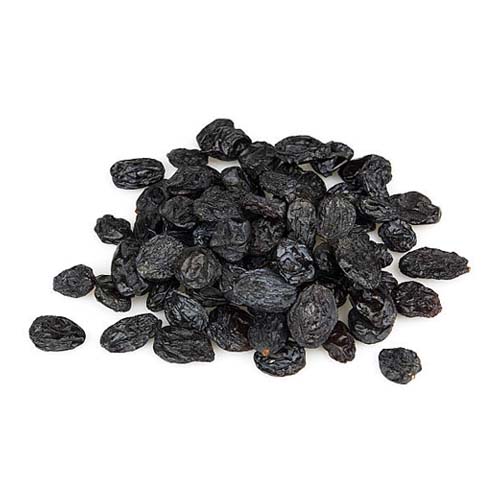
Raisins, also known as black dried grapes, have always been a popular pocket snack with a sweet and tangy flavour that everyone enjoys. In India, this small snack is known as Munakka, but it also goes by the names Zabeeb, Maneka, dried grapes, and black raisins. These small natural treats are nutrient-dense. Sugars (glucose and fructose), vitamins (ascorbic acid, riboflavin, thiamin, and pyridoxine), dietary fibres, and minerals (zinc, phosphorous, iron, magnesium, calcium, potassium) are abundant in them. Black raisins or Munakka also contains flavonoids, resveratrol, epicatechins, phytoestrogens, and hydroxycinnamic acids, among other phytochemicals (plant-derived compounds).

The most popular dried grape is black raisins, which are typically made from seedless Thompson grapes set out on paper and sun dried for three weeks, but can be made with grapes of any skin colour. As the raisins dry, they become brown to black. Heat and sunlight are also important factors in the browning reaction. The darker the raisin and the more caramalized the flavour, the higher the heat and the more direct sunlight.
Raisins should be stored in an airtight container in the refrigerator to keep them fresh and prevent them from drying out. If you buy raisins in single serving boxes and don't want to transfer them to another container, refrigerate the boxes to increase their shelf life. Consume raisins within six months. The key to preserving the freshness of any food is proper storage. Place the raisins in an airtight container or bag and keep them somewhere cool and dark. Within a month of being kept in a warm place, they begin to dry out and lose vitamins.
Raisins are very essential ingredient in Indian cuisine, particularly in festive desserts. While most of us identify raisins with dark yellow or brown colour, black raisins have numerous health benefits. It helps in the reduction of excessive blood pressure, the prevention of anaemia, and has number of other health advantages. They are an excellent source of iron and antioxidants, making them an excellent complement to our diet.
Many of us tend to overeat raisins since they are abundant in many essential nutrients and fibre, as well as the capacity to keep our digestive systems in good shape. Very few know eating too many raisins can cause digestive problems, oxidative damage to healthy cells, and elevated blood sugar levels. That's why, especially if you're trying to lose weight, it's critical to keep track of how many raisins you consume. The daily intake of raisins should not exceed 40 grams.
All Copyright © 2024 Saturn Worldwide Impex